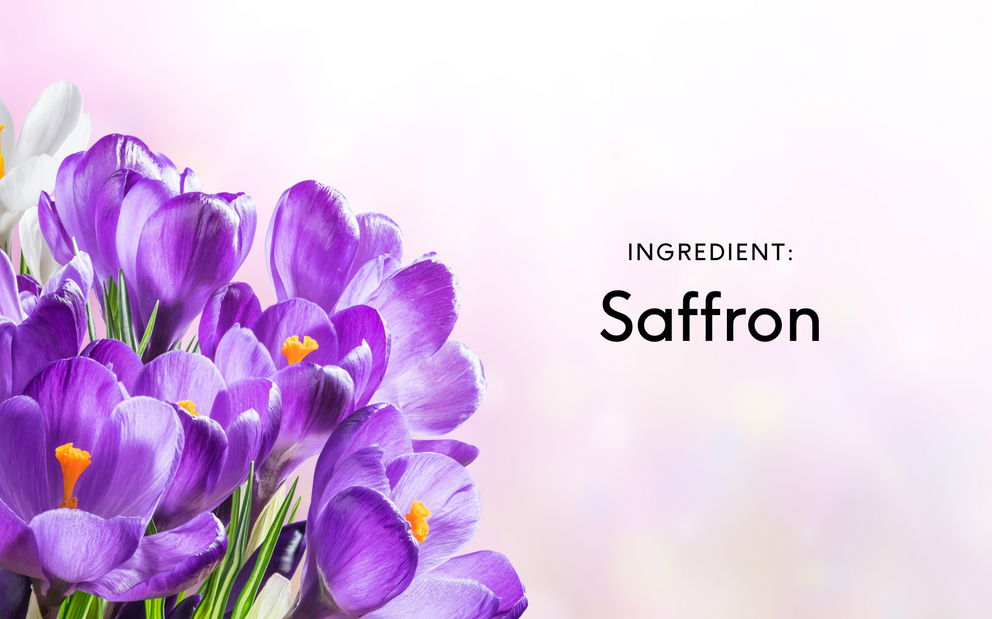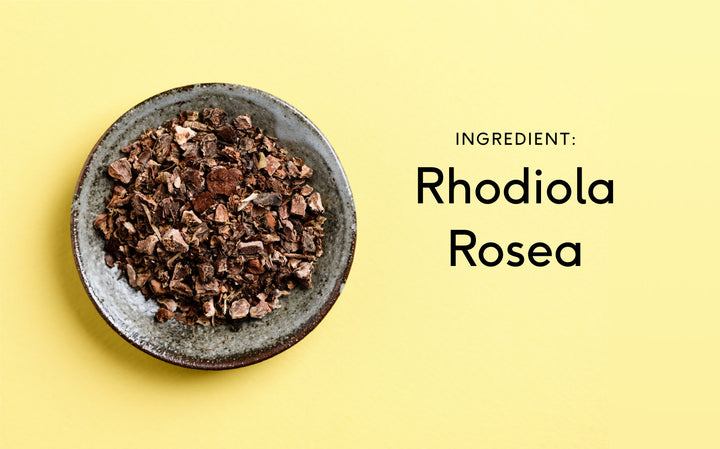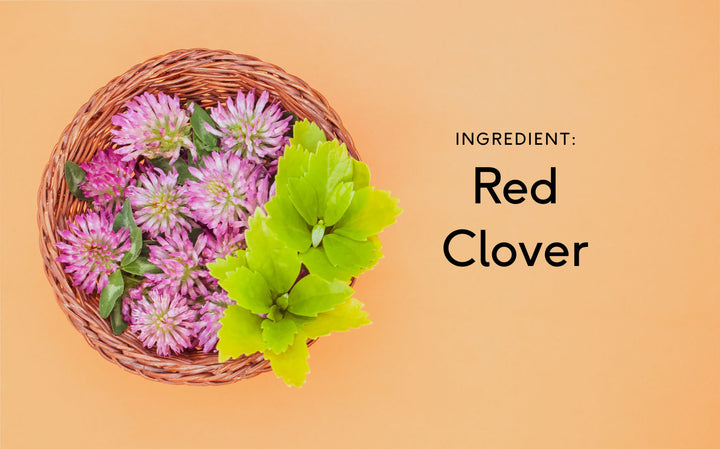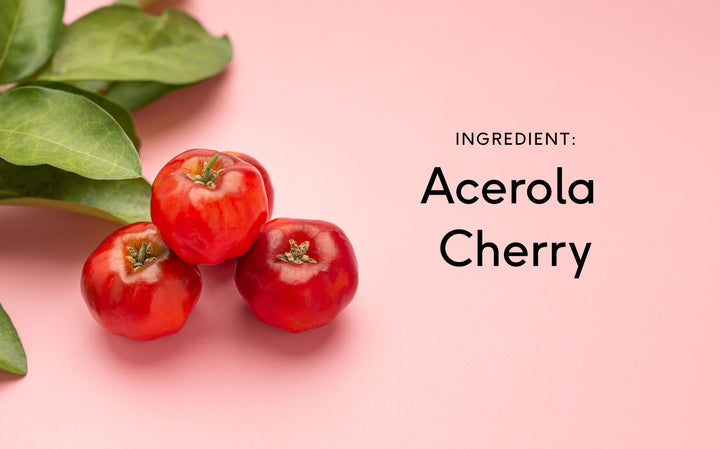Learn About Saffron in 5 Minutes
Table of contents

What is saffron?
Saffron is a spice derived from the filaments that grow inside the Crocus sativus flower. This flower has been cultivated for its aesthetic beauty, culinary value, and medicinal benefits for centuries. In addition to imparting a unique flavour to meals, saffron appears to have potent antioxidant properties, and researchers believe that this substance may have neuroprotective, metabolic, and sexual health benefits. In fact, more than a dozen potential benefits of saffron have been discovered to date.
Is saffron water-soluble or fat-soluble?
Saffron is water-soluble, which means that it breaks down rapidly in the body’s aqueous fluids and absorbs efficiently into your tissues.
Where can Crocus sativus be found naturally? Common sources of saffron:
The only natural source of saffron is the mature filaments of the Crocus sativus flower. Even though Crocus sativus is widely grown explicitly for the purpose of deriving saffron spice, the high demand and low supply of this substance make saffron the world’s most expensive spice.
What is the recommended daily value for saffron?
The safety and ideal daily dosages of saffron have not been established by any major regulatory agency, but in clinical studies, dosages between 250 and 1,500 milligrams of saffron have been well-tolerated.
Can you absorb enough saffron from food?
Consuming saffron as a spice you add to your food is certainly one way to ingest this natural, beneficial substance. Apart from its high costs, this spice has a distinctive and relatively potent taste, however, so you might find it undesirable to add saffron to your food on a daily basis.
Why is saffron necessary for your body?
Research indicates that saffron may be a potent antioxidant, and your body uses antioxidants to prevent oxidative stress, which harms your tissues at a cellular level and reduces your lifespan. Each antioxidant substance affects your body in different ways, however, and scientists believe that saffron may exert its purported antioxidant effects primarily by improving your sexual health and neurological fortitude.
Functions of saffron
- Potential neuroprotective benefits: Research indicates that saffron’s purported antioxidant functions may protect your nervous system and prevent or reduce the symptoms of neurodegenerative conditions like Alzheimer’s disease.
- Potential mood benefits: Studies indicate that saffron may prevent the symptoms of mild-to-moderate depression while also improving your overall mood.
- Potential sexual health benefits: Studies show that saffron may reduce symptoms of premenstrual syndrome (PMS) and this substance may also have aphrodisiac qualities.
- Potential appetite and weight loss benefits: Saffron may increase feelings of satiation and reduce food intake. Scientists speculate that saffron may encourage weight loss by improving your mood, which reduces the urge to snack.
- Potential cardiovascular benefits: Studies indicate that saffron may reduce levels of cholesterol in your blood and prevent your arteries from clogging.
- Potential metabolic benefits: In certain studies, saffron appears to reduce blood sugar levels, which could prevent or reduce the symptoms of diabetes.
- Potential eyesight benefits: Saffron appears to help with the symptoms of macular degeneration in adults by preventing ocular free radical damage.
When should you take saffron?
Since saffron appears to have wide-ranging antioxidant properties, it’s a good idea to take this spice even if you don’t suffer from any ailments or conditions. For both men and women with sexual impairments, however, saffron may be a highly effective natural treatment, and this substance could also be useful for diabetes, heart disease, macular degeneration, and a wide range of other specific conditions. Often called the “sunshine spice,” saffron also appears to be useful for improving your mood whether you feel depressed or not.
How long do you need to take saffron to start experiencing its benefits?
Saffron is water-soluble, so it will absorb into your body quickly. Like most supplements, however, the effects of saffron are cumulative, so you may need to take this spice for a few weeks to notice significant effects.
How long does it take for your body to digest/absorb saffron?
As a highly bioavailable, water-soluble nutrient, saffron should absorb into your body within 24-48 hours.
How long does saffron stay in your body after you take it?
Water-soluble substances like saffron generally only stay in your body for 2-3 days.
Is saffron an antioxidant?
Available research strongly indicates that saffron may have potent antioxidant properties.
Can you overdose on saffron? What are the effects?
Saffron is considered toxic at doses exceeding 5 grams. Minor saffron overdose will cause nausea or vomiting, but dosages between 12-20 grams could be fatal.
Does saffron dissolve, flush out, or build up in the body?
Most of the constituents in saffron dissolve and flush out of the body within 2-3 days. Some components, however, may build up in fatty tissues like the liver.
Can you take saffron during a diet?
Saffron is all-natural, gluten-free, and vegan, so it does not interfere with common dietary restrictions.
Are there synthetic forms of saffron?
Saffron contains more than 100 different unique components including picrocrocin, which has an exceedingly complex molecular structure. Due to these attributes, it is incredibly hard to synthesise saffron although fake versions of this spice do exist on the market.
Absorption rate of synthetic saffron
No information is available on the potential absorption rates of synthetic saffron.
Why might natural forms of saffron be better?
Synthetic forms of saffron are commonly made cheaply with dangerous ingredients due to the high market price that genuine forms of this spice command. Natural saffron is both safer and more effective than synthetic alternatives.
How to take saffron
Saffron is generally taken orally in supplement form or in food.
Saffron trends in medicine
A 2020 review of the available evidence found that there are sufficient grounds to believe saffron may significantly improve cognitive function. Also in 2020, a clinical study found that saffron may exert impressive sleep-inducing effects in people with insomnia.
Sources
1. Neuroprotective properties of dietary saffron: more than just a chemical scavenger?
2. Saffron (Crocus Sativus L.) and Major Depressive Disorder: A Meta-Analysis of Randomized Clinical Trials
3. Epidemiology of Premenstrual Syndrome (PMS)-A Systematic Review and Meta-Analysis Study
4. Saffron for Treatment of Fluoxetine-Induced Sexual Dysfunction in Women: Randomized Double-Blind Placebo-Controlled Study
5. Saffron and Crocin Improved Appetite, Dietary Intakes and Body Composition in Patients With Coronary Artery Disease
6. Influence of Crocetin on Experimental Atherosclerosis in Hyperlipidamic-Diet Quails
7. Saffron (Crocus Sativus L.) Increases Glucose Uptake and Insulin Sensitivity in Muscle Cells via Multipathway Mechanisms
8. Natural Compounds From Saffron and Bear Bile Prevent Vision Loss and Retinal Degeneration
9. Effects of saffron (Crocus sativus L.) on cognitive function. A systematic review of RCTs
10. Effects of saffron on sleep quality in healthy adults with self-reported poor sleep: a randomized, double-blind, placebo-controlled trial




















































 Back
Back





